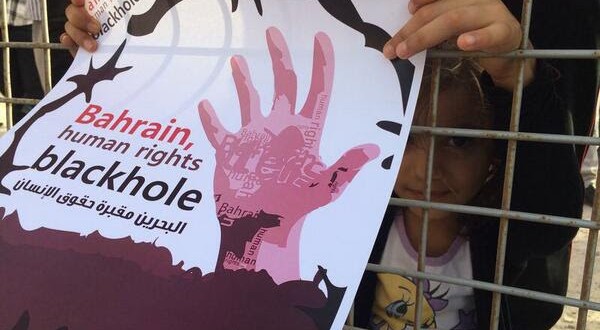The International Conference on the Arabian Court for Human Rights was held on 25th and 26th May in Bahrain with the presence of international rights groups and personalities. State members and representatives of the Arabian League also attended the conference. The conference chose Bahrain to be home to the Court despite its tarnished record of human rights violations perpetrated against the people of Bahrain.
The National Democratic Opposition Parties welcome the guests and wish them a pleasant stay. In regards to our position from the conference, we stress on the following:
Firstly: Choosing Bahrain to be home to the Arabian Court for Human Rights is a politically-motivated decision and is not linked to rights and law. This is because the Government of Bahrain continues to practice heinous rights violations against political dissidents, rights activists and citizens who peacefully call for their rights.
Over 3000 prisoners of conscience remain behind bars in Bahrain and most have been subjected to physical and psychological torture. At least 5 prisoners were killed in torture rooms inside Bahraini jails. This is in addition to the extrajudicial killings of tens of citizens, most recently, Sayed Mahmoud Mohsin. While the corpse of the martyr Abdulazziz Alabbar remains in detention because the authorities refuse to state the real cause of death, extrajudicial killing, in the death certificate, in an attempt to provide impunity to the killers who serve at the Interior ministry.
Secondly: the Bahraini courts lack independency and integrity. The sentences given to prisoners are politically motivated and lack internationally recognized litigation requirements, especially in regards to evidence put forward by the prosecution office and which is either extracted under torture or labelled with “secret-sources”, that neither the court or lawyers of defendants can see. This explains the lengthy sentences issued by these courts. The constitution, national law and international covenants all agree on the invalidity of confessions obtained under torture, however, the prosecution office accepts them as evidence.
Thirdly: establishing a human rights court on the Arabian level requires absolute conviction of human rights, theoretically and practically. This necessitates national legislations that agree with international rights standards. This includes a wide jurisdiction power to hold those involved in rights violations to account, regardless of them holding senior positions. The judiciary must not allow impunity to rights violators and must ensure all victims receive remedy and compensation in order to meet justice. This, however, has not been done in Bahrain in the shadow of the ongoing violations, including extrajudicial killings and systematic torture as Bahrain refuses to abide by the international covenants.
Fourthly: holding this international conference, on the Arabian Court for Human Rights, in Bahrain, is part of the white-washing Public Relations campaign that has risen recently ahead of the UN Human Rights Council session to be held in June. The Civilizations Debate Conference and the London symposium that was held in mid May were also part of the PR campaign.
This is considered an attempt to escape the rights pledges that the Government of Bahrain has not implemented, including those of the BICI and the United Nations Universal Periodic Review. The very first of these pledges is to release of prisoners of conscience and to engage in a genuine dialogue.
Fifthly: the goals of the Arabian Court for Human Rights have been buried in Bahrain by making them part of the PR campaign and by excluding the opinions of civil society institutions and lawyers unions and experts societies. The participants in the conference came to discuss the draft of the Court’s Statute only to find that it is being imposed on them. Some participants walked out of the conference from the first day while international rights groups and personalities expressed their refusal to be false witnesses.
Sixthly: we call on the United Nations organizations that are concerned with human rights to follow and urge the Government of Bahrain to halt the outrageous abuses perpetrated against the Bahrainis. Bahrain must also live up to its pledges and allow the still-pending visit requests of the UN Special Procedures. The UN rights organizations are called on to urge Bahrain to allow the Special Rapporteur on Torture and Degrading Treatment to visit the country. Bahrain must also be urged to open a permanent office for the UN High Commissioner for Human Rights to monitor and follow up on the Government of Bahrain in regards to the implementation of the BICI report, putting an end to rights violations, hold violators accountable and ensure freedom of expression and assembly are not restricted.
We also call on international rights groups to take caution of the Government’s renewed attempts to let rights violators go without accountability by announcing whitewashing promises that are never implemented while violations continue against the people of Bahrain.
Manama- 26th May 2014
National Democratic Opposition Parties
Al-Wefaq National Islamic Society (AlWefaq)
National Democratic Action Society (Waad)
The National Progressive Tribune Society (Taqadomi)
National Democratic Gathering Society (AlQawmi)
Ekhaa National Society (Ekhaa)
/129

